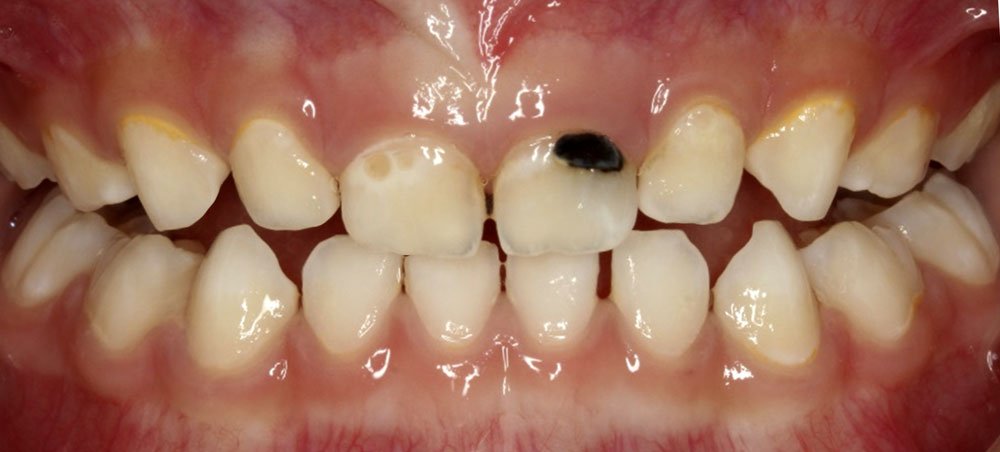Baby Bottle Decay
Even though baby teeth are temporary, those teeth are important- and are susceptible to cavities. Tooth decay in infants and toddlers is referred to as “Baby Bottle Decay,” or “Early Childhood Caries”. Some people call it baby cavities. Children need healthy and strong teeth to chew their food, to talk, and to have a great smile. Their first teeth help make their adult teeth come in correctly. It’s important to start infants off with great oral care to help protect their teeth for the rest of their futures. Afterall, we all want healthy baby teeth for our children
What causes baby bottle decay
Baby Bottle Tooth Decay mostly occurs in the upper front teeth but other teeth may also be affected. There are many factors which can cause tooth decay. A common cause is frequent, prolonged exposure of the baby’s teeth to drinks that have sugar in them.
Tooth decay can occur when the baby is put to bed with their bottle, and when a bottle is used as a pacifier.
Tooth decay is a disease that can begin with cavity-causing bacteria being passed from the mother or primary caregiver to the infant. The bacteria is passed through the saliva. When a mom puts a baby’s feeding spoon in her own mouth, for example, the bacteria can be passed to the baby when it goes back into their mouth.
If your infant or toddler does not receive an adequate oral hygiene, they have an increased risk of getting tooth decay.
How to prevent baby bottle decay
As mentioned above, baby bottle decay is caused by bacteria and can be prevented by preventing the transmission of the bacteria
- Don’t share saliva with the baby through the use of feeding spoons or pacifiers.
- After each feeding, wipe your child’s gums with a clean, damp gauze pad or washcloth.
- When your child’s teeth come in, brush them gently with a child-size toothbrush and a bit of fluoride toothpaste until the age of 6.
- Supervise toothbrushing until the child learns to not spit and not swallow their toothpaste, which usually isn’t before age 7.
- Place only formula, milk or breastmilk in bottles. Do not fill a baby bottle with juice or soft drinks.
- Use water after using formula milk to flush the left overs of the formula on the teeth.
- Infants should finish their bedtime and naptime bottles before actually going to bed.
- If your child uses a pacifier, make sure it’s clean—don’t dip it in sugar, honey, or anything else.
- Encourage your child to drink from a cup by their first birthday!
- Make sure they have healthy eating habits. Stay away from candies and sugar coated sweet.
When your child’s first tooth appears, talk to your dentist about scheduling the child first dental visit. Treat the first dental visit as you would a well-baby checkup with the child’s dentist. Starting early is the key to great dental health.
More great articles:
Does your child suffer from dental fear, read about tips to reduce dental fear.
7 tips to manage baby’s teething



